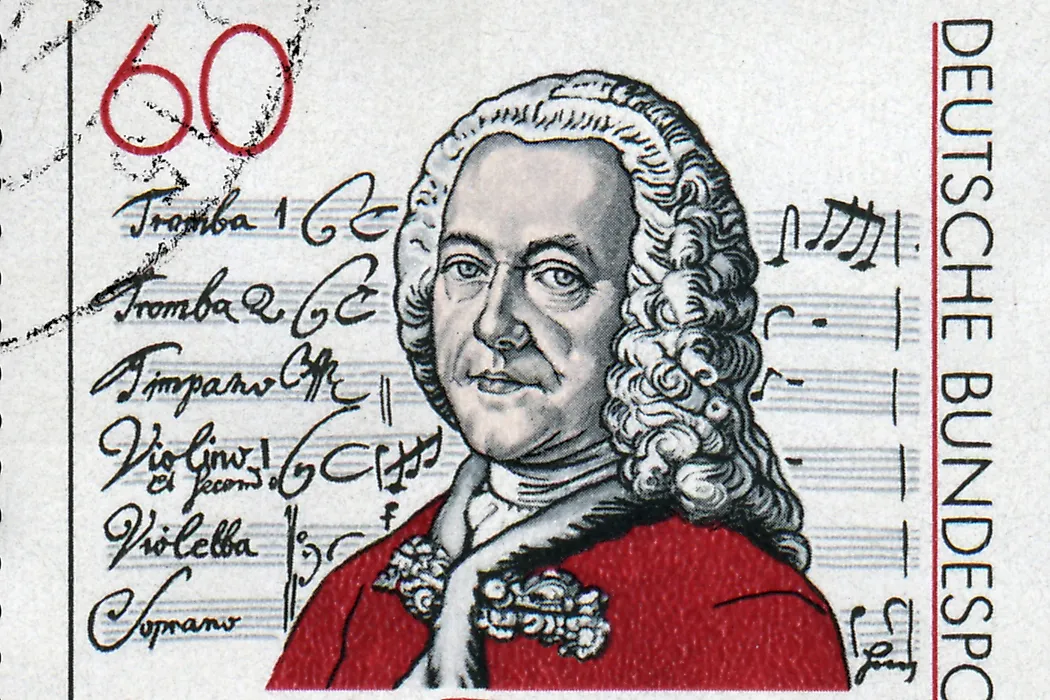I say this in part because I urge everyone to listen again to the music for Christmas Day written by Praetorius. Praetorius, the first great composer of Lutheran church music, wrote countless pieces based on popular Lutheran chorale tunes, ranging from simple harmonizations to flamboyant fantasias for multiple choirs with instruments. He also provided detailed instructions regarding various performance options--including ways to involve the congregation. In this CD you hear a marvelously extravagant Christmas service -- elaborately scored Mass movements, simple harmonizations, the Creed (with Luther's own music), lusty congregational singing, and spirited organ improvisations. Plan now to download it to your music library or see the playlist on YouTube here.
As good as this is, there is another giant more known for his secular compositions than his churchly ones. He was also a Lutheran, son of a Lutheran pastor, whose compositional output embarrassess all the giants -- Lutheran or otherwise. BBC’s Donald Macleod once observed that Telemann “probably composed more music than Bach and Handel put together, and the sheer quantity of his work has probably tarnished his reputation for modern audiences [who assume that] if music flowed from him like water from a tap, surely most of it can’t be any good.” More than 3,600 of his works have survived either in print or manuscript. The church cantatas alone—written for liturgical use—account for half -- between 1,400 and 1,700 compositions, on top of which were dozens of settings of the Passion for use during Holy Week.
Over 200 of Telemann's works were written for use during Advent and Christmas, most of which have never been recorded or even published in modern performance scores. Typical of his compositions is their extended use of the Lutheran chorale -- giving interpretation and focus to the great hymns of Paul Gerhardt, Johann Franck, and Philipp Nicolai -- among others. So, if you will do me the favor of listening to Praetorius this Christmastide, please do not forget Georg Philip Telemann.

4 comments:
It all starts with education and the commitment to just doing it. One of the greatest services to the Church are countless German record labels that invest in producing and providing Lutheran music to a global audience. CPO has an ongoing series of Telemann’s cantatas and oratorios. They also have a very fine series of major and more obscure Lutheran organ music. DG produced the Praetorius Christmas Mass, Schütz Christmas Vespers, and Bach Epiphany Mass reconstructions. BIS (okay, they’re Swedish) did an entire cycle of the Bach cantatas, and reminded us on one of the Missa Brevis recordings that even Bach liked to use the best of contemporary Italian church music (Kyrie and Gloria) in the Divine Service in Leipzig.
Can we have such a church music revival today? Depends. You need well paid church musicians. And published accessible music. But it could happen, if the national synod had the vision and will.
You begin by writing: "Lutherans have a richer heritage of musical genius than any other liturgical tradition." I'm not discounting the genius of great composers like the Bach family, especially JS, or Schutz, or Scheidt, or Praetorius or Telemann or Buxtehude, but come on. This is a ludicrous statement. You're seriously going to take these few composers, great as they are, and put them up against what the Catholic Church's composers did for their liturgies. You're seriously going to give greater weight to the ones I mentioned above over the Catholic church which produced Palestrina, Lassus, Byrd, Taverner, Victoria, Morales the Gabrielis, Monteverdi, Biber, the Haydn brothers, Mozart, Schubert, Bruckner, Dvorak, Rossini and what they produced for the Catholic liturgies? Get real.
It’s about quality, not quantity. No one cares about Catholic Renaissance music, much less Rossini or Bruckner. Praetorius is still sung in the Lutheran Church. And everyone knows that Bach is best.
Look at the liturgical music by these composers and how it is used still and compare. No one is disputing the musical genius of the composers you named but how much of their music actually is sung in a typical congregation. I venture to say more Lutheran works are in a congregational setting than those you have named. Rome suffers from an even worse case of flawed liturgical music than Lutheranism (the Joncas, Haugen, et al syndrome). Plus many Roman congregations have only a praise band and no organ or liturgical choir (even though this flies in the face of Vatican II documents and the GIRM, which Lutherans do not have to order their local liturgical practice).
Post a Comment